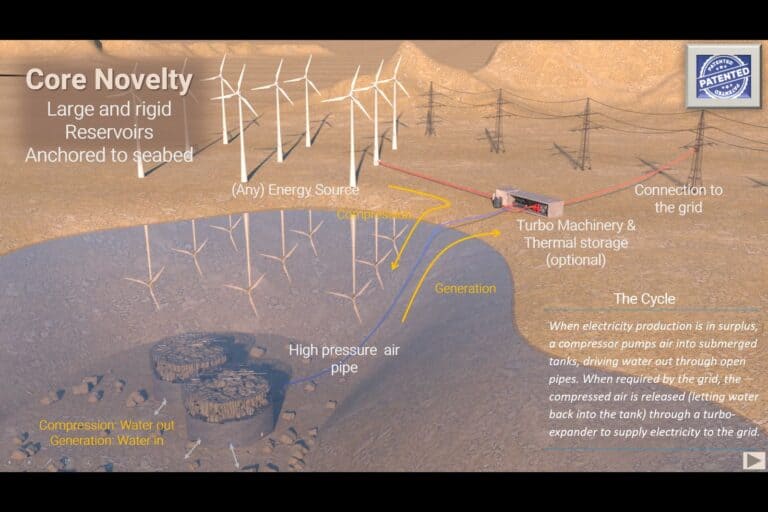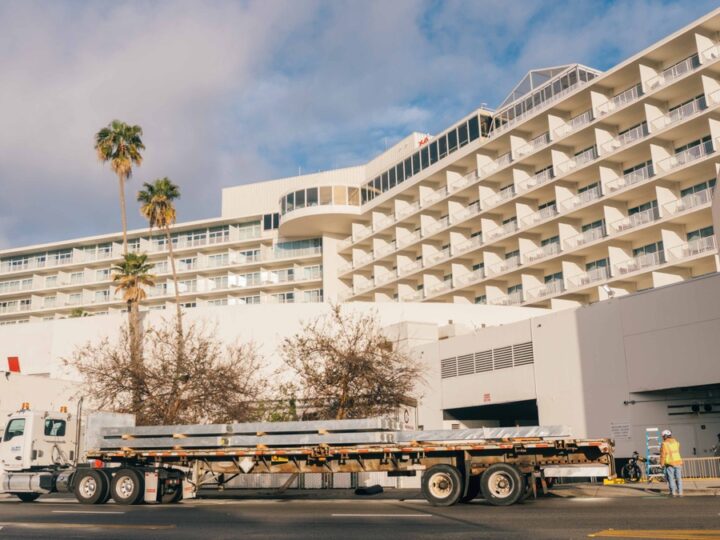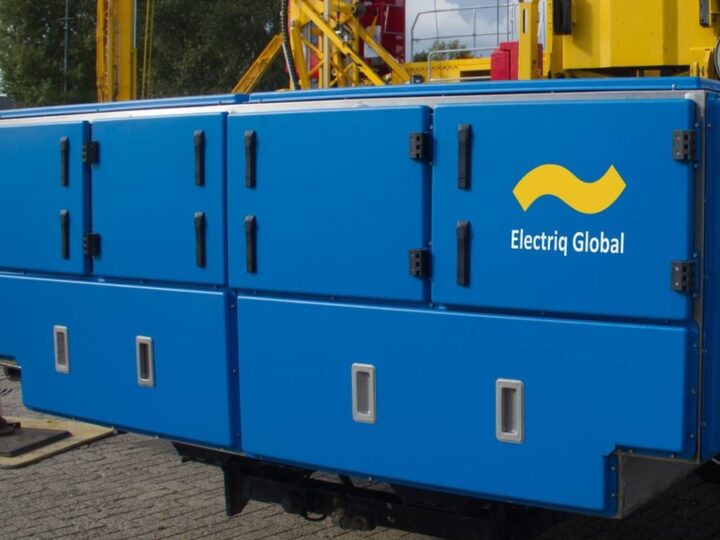“When you look at electricity production, you realize renewable energy has already arrived,” Yonadav Buber tells ISRAEL21c.
“The cost of renewable energy production is already competing with that of coal and natural gas. The only reason we haven’t yet become dependent on renewable energy is that it works whenever it wants – you can’t turn on the sun at night or make the wind blow.”
There are lots of companies examining ways to store renewable energy to make it more available. “But I always think that the simplest solution is also the best one,” Buber says.
And as the CEO of Israeli energy storage startup BaroMar, Buber believes his company has reached such a solution – storing renewable energy underwater, right on the seabed.
One simple, low-tech solution, he notes, is compressing air inside a tank and then releasing it to create electricity. Such high pressure requires either very big, strong tanks, or geological formations such as former natural gas reservoirs that have been emptied of gas. Neither option is widely available.
What is more commonly available, he says, is the sea.
Deep in the sea, where the pressure levels are high, tanks storing high-pressure compressed air don’t need to be particularly strong or big because pressure levels aren’t so different in and out of the tank. This fact stands at the heart of the solution BaroMar is now developing.
“This is a really genius solution, because it circumvents the problem in a very elegant way. It also creates the possibility of more or less endless energy storage, because we’re talking about the seabed, which is not exactly hot real estate,” Buber says.
“We can place as many simple concrete tanks as we want, and on the beach itself only take up very little space in the form of a compression station.”
A use for unused electricity
In BaroMar’s solution, the energy used to compress the air in underwater tanks comes from surplus electricity from the grid, which travels to the seabed via pipes.
“What’s so good about the solution is that it doesn’t burn anything – it utilizes energy that is available and unused on the grid. This energy enters the compressor, gets stored in the concrete tanks and then later, when the electricity is needed, the air makes its way back up to the beach and passes through a turbo expander and generator.”
This usage of surplus electricity at certain times of the day, Buber adds, can help address the issue of surplus renewable energy that goes to waste.
“That’s why the issue of energy storage is so important. It enables us to time our usage of renewable energy, and to match supply with demand. This lack of matching is the reason the world hasn’t moved to 100 percent renewable energy – because you need, for example, energy at night, and you don’t know whether the wind will blow, but you do know that the sun most certainly won’t shine.”
In terms of footprint, Buber stresses that the solution is carbon neutral since it doesn’t require any electricity of its own – only surplus power.
Its physical footprint on beaches would be minimal, while underwater the non-hazardous concrete tanks will be located at the depth of 500 meters, where there’s little marine life.
Proven solution
BaroMar’s solution is unique, he says, in that it doesn’t compete with battery-type energy storage solutions that can provide energy for a short period of time. Instead, it could provide lengthy periods – even whole seasons – of energy.
The technology is proven to work, Buber adds.
“Unlike other solutions, which require extensive development until they can prove themselves, our main challenge is bureaucratic, and has to do with regulations and certain engineering challenges of building on the seabed. Other technologies, meanwhile, have yet to be proven, or proven only in a lab, and it will be more challenging for them to reach commercial stages.”

The company, which has seven employees and works out of Kfar Monash, a small village in the green Sharon area in central Israel, won seed financing and is now scouting out premises for a feasibility facility in Israel or abroad.
Buber hopes to complete the test facility within the next couple of years, and then immediately begin constructing commercial ones.
“Our clients can be divided into three categories,” Buber notes. “First, there are the renewable energy producers, who don’t manage to sell all of their energy to the market, and then they have a surplus that they need to get rid of. Second, there are very large electricity consumers, who want to progress to 100 percent renewable energy — for example ports, metal manufacturers and large factories.
“And our third type of customer is governments. We’re in discussions, for example, with the government of Cyprus, to make them the first member state of the European Union to run on 100 percent renewable energy by 2030.”
Buber admits the BaroMar solution isn’t universal.
“For example, not all countries have access to the sea, and even in Israel, the relevant place for us is Eilat and not the Mediterranean Sea, because the relevant depths in the Mediterranean are very far away from the coast. But where we can help, we will.”
Buber relates that when he watered his garden on a searingly hot August morning and saw how yellow it is, “I said to myself that we better hurry up and help the world quit burning fossil fuels as quickly as possible.”
For more information, click here.















